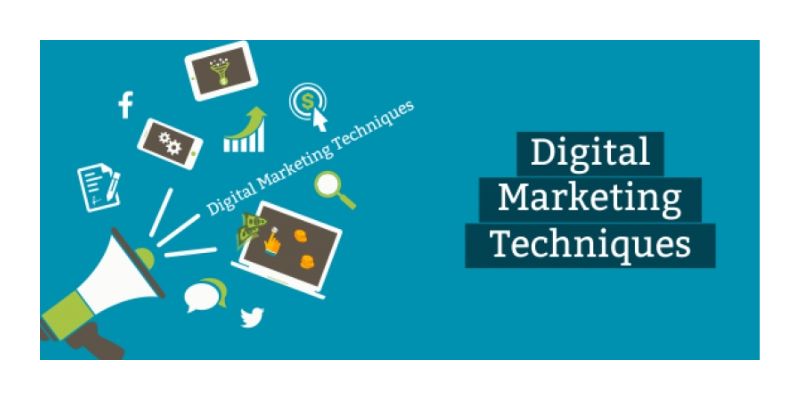
In the contemporary virtual age, advertising has advanced past conventional methods. With the upward push of the net and social media, companies must be admitted to strategies to reach their target audience, establish brand awareness, and increase conversions. Some of the most popular and effective digital marketing techniques include social media marketing, e-mail marketing, seek engine optimization (SEO), pay-per-click on advertising (PPC), and lots of others. These methods allow businesses to engage with their audience on a deeper level and create a more personalized experience, ultimately leading to increased customer loyalty and higher ROI. Digital Marketing Courses in Bangalore help you develop the skills and knowledge needed to succeed in this field.
Effective Digital Marketing Techniques
- Search Engine Optimization (SEO):
– On-page SEO: Optimizing website content, meta tags, URLs, and internal linking structure to improve search engine rankings.
– Off-page SEO: Building backlinks from reputable websites, social media signals, and online mentions to increase domain authority and visibility.
– Technical SEO: Improving website performance, mobile-friendliness, site speed, and schema markup to enhance search engine crawling and indexing.
- Content Marketing:
– Creating high-quality and relevant content such as blog posts, articles, videos, infographics, and podcasts.
– Distributing content across various platforms including website, social media, email newsletters, and third-party publications.
– Implementing content marketing strategies for different stages of the buyer’s journey to attract, engage, and convert leads.
- Social Media Marketing (SMM):
– Developing a social media strategy based on target audience demographics, interests, and behavior.
– Creating engaging content for platforms like Facebook, Instagram, Twitter, LinkedIn, Pinterest, and TikTok.
– Leveraging social media advertising to reach specific audience segments, drive website traffic, and generate leads.
– Engaging with followers, responding to comments, and fostering community interactions to build brand loyalty.
- Email Marketing:
– Building an email list through website sign-ups, lead magnets, and customer opt-ins.
– Segmenting email subscribers based on demographics, behavior, and purchase history for targeted campaigns.
– Sending personalized and relevant email content including newsletters, promotions, product updates, and automated drip campaigns.
– Monitoring email performance metrics like open rates, click-through rates, and conversions to optimize campaigns.
- Pay-Per-Click Advertising (PPC):
– Creating targeted ads on search engines (Google Ads, Bing Ads) and social media platforms (Facebook Ads, Instagram Ads, Twitter Ads).
– Selecting relevant keywords, audience targeting options, ad formats, and bidding strategies to maximize ROI.
– Monitoring ad performance metrics, conducting A/B testing, and optimizing campaigns for better results.
- Influencer Marketing:
– Identifying and collaborating with influencers relevant to the brand’s industry, niche, or target audience.
– Negotiating partnerships, sponsorships, and content collaborations with influencers to promote products or services.
– Tracking influencer campaign performance, engagement metrics, and return on investment.
- Affiliate Marketing:
– Partnering with affiliates or publishers to promote products or services in exchange for a commission on sales or leads generated.
– Providing affiliates with unique tracking links, promotional materials, and performance incentives.
– Monitoring affiliate performance, tracking conversions, and managing affiliate relationships effectively.
- Video Marketing:
– Creating and sharing engaging video content on platforms like YouTube, Vimeo, and social media.
– Producing product demos, tutorials, testimonials, behind-the-scenes videos, and live streams to connect with the audience.
– Optimizing videos for search engines with keyword-rich titles, descriptions, and tags.
- Mobile Marketing:
– Designing mobile-responsive websites and mobile apps optimized for different devices and screen sizes.
– Implementing mobile advertising campaigns, including in-app ads, mobile search ads, and mobile video ads.
– Leveraging location-based marketing, push notifications, and SMS marketing to reach mobile users.
- Marketing Automation:
– Using marketing automation platforms to streamline repetitive tasks, nurture leads, and personalize customer experiences.
– Creating automated workflows for email campaigns, lead scoring, customer segmentation, and dynamic content delivery.
– Integrating marketing automation with CRM systems to track customer interactions across channels and measure campaign effectiveness. Digital Marketing Training in Marathahalli equip you with the necessary skills to create automated workflows for email campaigns, lead scoring, customer segmentation, and dynamic content delivery.
- E-commerce Marketing:
– Optimizing product pages with persuasive copy, high-quality images, and customer reviews.
– Implementing e-commerce SEO techniques to improve product visibility in search engine results.
– Utilizing shopping ads, remarketing campaigns, and abandoned cart recovery strategies to boost sales and conversions.
– Offering discounts, promotions, and loyalty programs to incentivize repeat purchases and customer retention.
- Customer Relationship Management (CRM):
– Implementing CRM software to manage customer data, interactions, and communication channels.
– Personalizing marketing messages, offers, and recommendations based on customer preferences and behavior.
– Segmenting customers into different categories (e.g., leads, prospects, loyal customers) for targeted marketing campaigns.
These digital marketing strategies can be customized and combined based on the specific goals, target audience, industry, and budget of each business. It’s essential to regularly analyze performance metrics, test different approaches, and adapt strategies to stay competitive in the ever-evolving digital landscape. Training Institute in Bangalore offers courses that cover everything from basic marketing principles to advanced digital marketing strategies.
Also Check: SEO Interview Questions and Answers